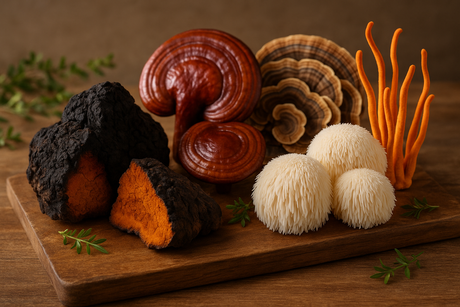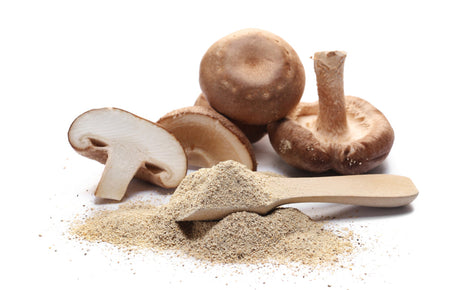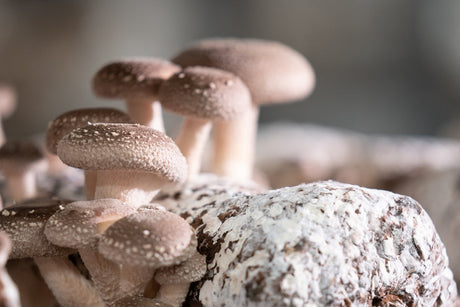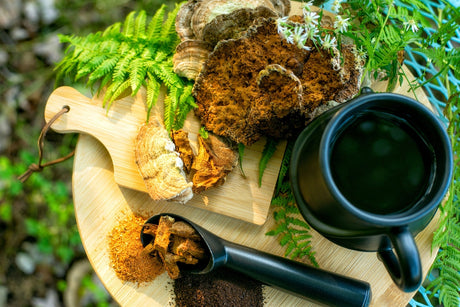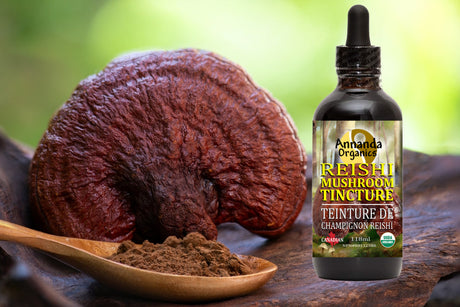
Even today, it is still highly popular, ranking just after black pepper in the US and Europe.
As little as half a teaspoon of cinnamon a day has the potential to positively affect blood sugar levels, digestion, immunity, and much more. Stronger doses can help decrease the risk of heart disease, diabetes, cancer, and neurodegenerative diseases.
Cinnamon Tea Benefits
Cinnamon is rich in fiber and manganese and contains vitamins and minerals such as:
- Calcium
- Iron
- Vitamin A
- Vitamin K
- Vitamin E
- Niacin
- Vitamin B6
- Magnesium
- Phosphorus
- Potassium
- Zinc
- Copper
Cinnamon also contains antioxidants such as choline, carotene, beta-cryptoxanthin, lycopene, lutein, and zeaxanthin.
These beneficial compounds offer a wide range of health benefits. They can help with managing weight loss, heart health, menstrual cramps, inflammation, and blood sugar levels.
Ceylon vs Cassia Cinnamon
Out of the approximately 250 species of cinnamon sticks there are two type of cinnamon in use today: Ceylon cinnamon and cassia cinnamon.
Ceylon cinnamon, sometimes called true cinnamon, is more expensive and harder to find in stores, as it is rarer. Cassia cinnamon, also known as Saigon or Chinese cinnamon, is grown from trees in China. It is less expensive and more common, so when you're shopping for cinnamon, this is likely the variety you are getting.
As cassia ground cinnamon is more common, it has been studied more than Ceylon. Both have many health benefits, but many researchers think that Ceylon may have more benefits between the two. Cassia cinnamon also contains more coumarin, which has the potential to damage the liver when too much is consumed.
Benefits of Cinnamon Tea
High in Antioxidants
The ORAC scale, which measures the concentration of antioxidants in foods, lists cinnamon in the top 10 of all foods, herbs, and spices per 100 grams.
Cinnamon contains specific antioxidants that are highly beneficial. Some that are particularly worthy of note include polyphenols, phenolic acid, and flavonoids.
These antioxidants help protect against oxidative stress and chronic disease, and can also help prevent nitric oxide buildup and fat peroxidation, both of which can increase the risk of health problems including:
- Brain disorders
- Cancer
- Heart disease
- Other chronic conditions
Antioxidants also help slow the aging process, strengthen the immune system, and protect the body from pathogens. This includes viruses, bacteria, and other harmful free radicals.
Lowers Inflammation
Short-term inflammation is essential to the body's healing process, helping fight infections, and heal injuries. Long-term inflammation, on the other hand, can lead to chronic health conditions.
Cinnamon contains many flavonoids which are effective at combating dangerous levels of inflammation in the body. The antioxidants in cinnamon may help relieve inflammation and lower the risk of:
- Heart disease
- Cancer
- Cognitive decline
- Other chronic conditions
The anti inflammatory properties help lower swelling and pain management, including muscle soreness and menstrual pain. It also has the potential to help lessen the severity of allergic reactions and relieve age-related pain symptoms.
Cinnamon's anti-inflammatory potential may also have an effect on the central nervous system. In particular, cinnamon may help protect regulatory T cells and restore myelin levels. This may be beneficial to those suffering from multiple sclerosis.
Improves Heart Health
Cinnamon's ability to improve heart health is one of its top benefits. As little as 120 mg—or a tenth of a teaspoon—of cinnamon per day is enough for this purpose.
Cinnamon has been shown to reduce several common risk factors for heart disease, such as:
- High cholesterol levels
- High triglyceride levels
- High blood pressure
It is also a helpful blood coagulant that can help stop excess bleeding by assisting the body with blood clots.
Cassia cinnamon, in particular, contains a high amount of natural coumarins.
Coumarins can help prevent the narrowing of blood vessels and may protect against blood clots. Ingesting too many coumarins should be avoided though, as they can reduce liver function and increase bleeding.
Cinnamon may also increase circulation and improve tissue repair. Potentially, it may even assist in regenerating heart tissue to help combat heart attacks, heart disease, and stroke.
Blood Sugar Management
Cinnamon cannot replace the need for a healthy diet or prescribed medication or insulin, but it can stabilize the blood sugar levels of people with type 2 diabetes.
Cinnamon has anti-diabetic effects and is considered one of the best foods for diabetics. Multiple studies have observed benefits from powdered cinnamon in doses between 120mg to 6g. Those with type 2 diabetes may especially find cinnamon to have significant positive effects on their blood sugar markers.
Cinnamon appears to have a somewhat similar effect as insulin, the hormone responsible for transporting sugar to your tissues from your bloodstream. It cannot replace cinnamon, but it can help decrease insulin resistance, slow the breakdown of carbs, and prevent blood sugar spikes after a meal.
Weight Loss
Many claim that cinnamon tea helps them lose weight and several studies have confirmed this. Cinnamon intake is linked to fat loss and reductions in waist circumference.
Adding cinnamon to foods may help slow sugar absorption and stabilize blood sugar, it may help curb cravings as well.
Unfortunately, not all of these studies have properly taken calorie intake into account. Most also did not distinguish between fat loss and muscle loss. For these reasons, it is difficult to be sure cinnamon intake was the sole reason behind the weight loss.
Helps Fight Bacteria and Fungi
The main ingredient in cinnamon, cinnamaldehyde, has been shown to have some antibacterial and antifungal properties. This may help prevent the growth of many bacteria, fungi, and molds. This includes common bacteria known to cause illness, such as Staphylococcus, Salmonella, and E. Coli.
The potent antifungal properties in cinnamon may also help in treating and preventing candida overgrowth in the digestive tract. This has the potential to prevent many digestive and autoimmune issues.
Oral Health
Cinnamon was traditionally used as a tooth powder and a natural remedy for toothaches, dental problems, and mouth sores.
Cinnamon's potential antibacterial effects can help:
- Reduce bad breath
- Prevent tooth decay
- Protect against mouth infections
Cinnamon extract, in particular, can act as a natural mouthwash. It possesses potent antibacterial properties that naturally combat bacteria in the mouth.
Reduces Menstrual Symptoms
Menstrual cramps can be very painful, disruptive, and difficult to deal with. Cinnamon tea may help with menstrual symptoms including:
- Pain
- Premenstrual syndrome (PMS)
- Menstrual bleeding
It may also reduce vomiting and decrease the severity of any nausea.
Cinnamon was beneficial in multiple human trials, though it is not as effective as actual pain medication. However, for those with sensitivities or intolerance to certain pain medications, cinnamon may work as an alternative.
Skin Health
The antimicrobial and antibiotic properties of cinnamon may help protect the skin from rashes, infection, and irritation. Cinnamon may also promote collagen formation and increase skin elasticity and hydration to help decrease wrinkles and the rate of skin aging.
Plus, cinnamon extracts may have the potential to fight the bacteria that cause acne, leading to clearer skin. Cinnamon with honey, another antimicrobial ingredient, can help boost skin health and may be helpful for acne, rosacea, and skin allergies.
Combat Cancer
Cinnamon is being investigated for its potential to combat cancer because of its strong antioxidant abilities. This makes it a helpful for those at a higher risk of cancer.
Cinnamaldehyde in cinnamon has been shown to have to potential to combat certain cancers, slowing or preventing tumor growth and even killing cancer cells.
Cinnamon may protect against DNA damage, cell mutation, and cancerous tumor growth. Cinnamon has the potential to improve the health of the colon and may reduce the risk of colon cancer.
Maintain Brain Function
Test-tube and animal studies have found that cinnamon may prevent cognitive decline due to age.
Antioxidants in cinnamon may boost brain function and help defend against neurological disorders, like Parkinson's and Alzheimer's.
It has been shown to protect neurons against oxidative stress, as well as inhibit a specific protein in the brain associated with Alzheimer's. This may help reduce the risk of inflammation and cell damage. Further helping with brain function and prevent cognitive decline.
Combat Infections and Viruses
Test-tube studies have shown that cinnamon extract may help combat infections and viruses, including the most common HIV strain in humans.
Cinnamon has natural antimicrobial, antibiotic, and antiviral properties. This allows it to protect against infections like the common cold, strep throat, and pneumonia.
Soothes Stomach
Cinnamon tea can help maintain and support a healthy gut.
It can be used to alleviate stomach troubles, gastrointestinal discomfort, gas, and digestive imbalances. Some believe that cinnamon mixed with a spoonful of honey can relieve indigestion, and in animal studies, cinnamon was found to soothe gastric ulcers.
Adding Cinnamon to Your Diet
It is flavorful, with a naturally sweet taste, making it a good sweetener for those with insulin troubles.
Ceylon and cassia cinnamon are, for the most part, interchangeable in recipes. Ceylon is said to have a lighter citrus taste, while cassia has a deeper, spicier flavor.
Cinnamon tea is naturally caffeine-free, so it can be enjoyed any time of day. If you are interested in its potential to lower blood sugar, it may work better if consumed alongside your food.
How to consume Cinnamon Safely
Consult a doctor before ingesting high doses of cinnamon, especially cassia cinnamon. Large amounts can potentially cause liver damage and an increased risk of cancer.
Consumption of cinnamon is also associated with breathing problems and mouth sores in some people. Those with sensitivities to cinnamon may also find it to cause irritation when applied to the skin.
Consult a healthcare provider before adding cinnamon tea to your daily routine. Take precaution if you are taking medication for blood sugar or have diabetes, are pregnant or breastfeeding, have liver disease, or have recently undergone surgery.
Enjoying the Benefits of Cinnamon Tea
Cinnamon tea benefits are wide and varied. Not only is it rich in nutrients, but it can also help prevent, maintain, or ease many health conditions. Enjoying a cup of cinnamon tea daily offers health benefits.
These antioxidants work to prevent oxidative stress and chronic disease. They also help limit nitric oxide buildup and prevent fat peroxidation, both of which can increase the risk of various health problems.
Many cinnamon products exist of the market today, from cinnamon oil, tea bags power bars more.









